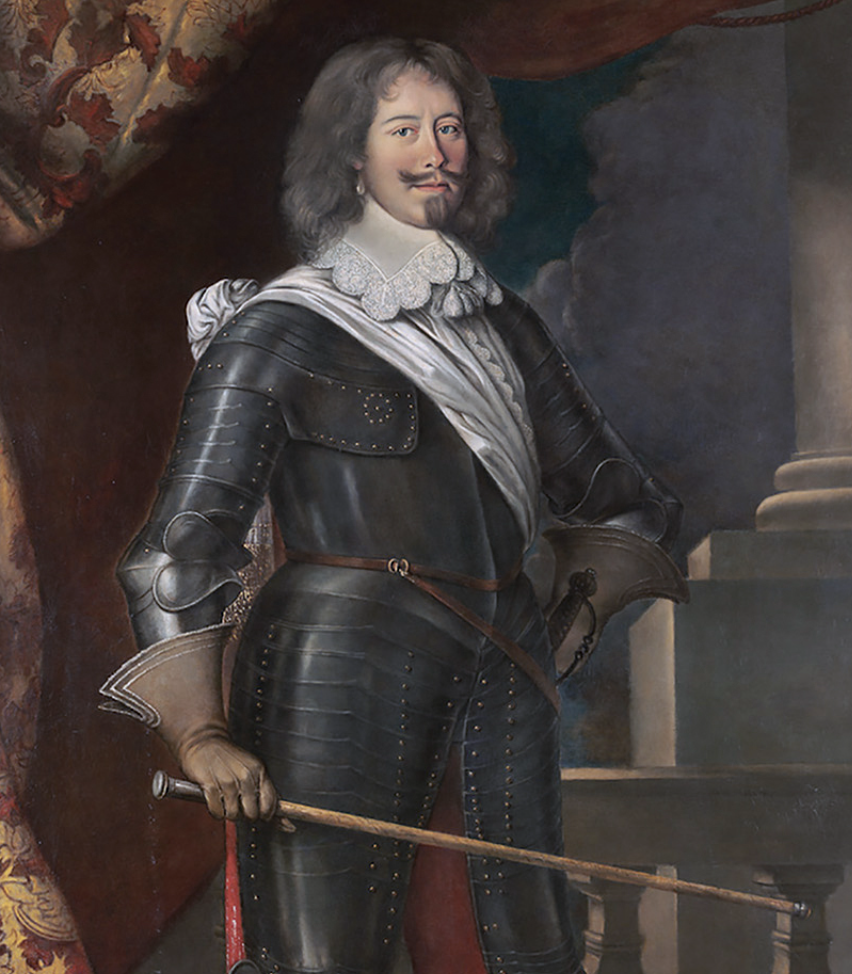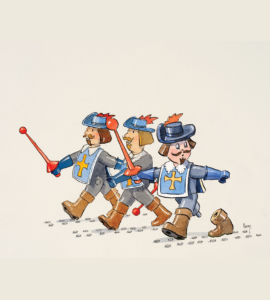Jean-Armand du Peyrer, the son of Marie d’Aramits and Jean du Peyrer, owner of the Trois-Villes estate in the Basque valley of Soule since 1607, moved to Paris in 1616 to join the French Guards. He was present at the 1627 siege of La Rochelle, where he was wounded while serving with the Musketeers.
He became captain-lieutenant of the Musketeers’ company in 1634, during the outbreak of the Cinq-Mars affair. The Marquis of Cinq-Mars, initially favored by Louis XIII through Richelieu’s influence, turned against the cardinal and plotted against him. Tréville was approached but difficult to persuade. His loyalty remained with the King, who favored the marquis but distrusted the cardinal. Richelieu uncovered the plot and executed Cinq-Mars, despite his status as the King’s favorite. With no solid proof against Tréville, Richelieu could not tolerate him as an opponent and demanded his immediate exile.
After Richelieu’s death in 1642 the King recalled Tréville and restored his command of the Musketeers. The same year, Louis XIII died. Anne of Austria elevated Trois-Villes to a county in honour of her husband’s loyal servant.
From one cardinal to another
The relationship between the new prime minister Mazarin and Tréville was no better. Suspicious of Tréville’s possible involvement in the Cinq-Mars conspiracy, Mazarin dissolved the Musketeers’ company in 1646 under the pretext of saving money. Tréville retired to his estates but was still appointed governor of the Foix region. He died in 1672 at the Château d’Eliçabéa, which he had built at Trois-Villes.
Dumas'world
Immortalized by Alexandre Dumas as Monsieur de Tréville in The Three Musketeers, Jean-Armand du Peyrer was related to two Musketeers in the novel. Athos (real name Armand de Sillègue d’Athos d’Autebielle) was the son of one of Tréville’s cousins, and Aramis (Henry d’Aramitz) was cousin to both Tréville and Athos.




